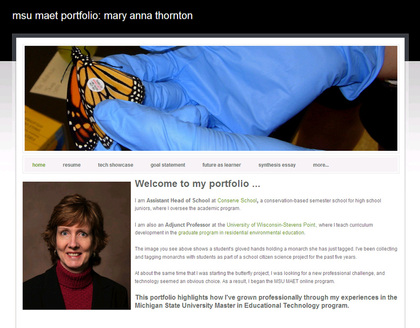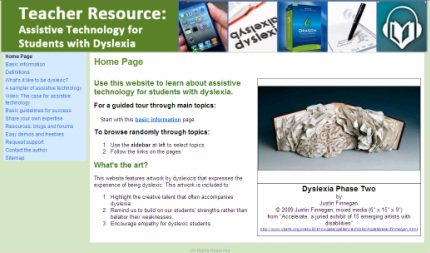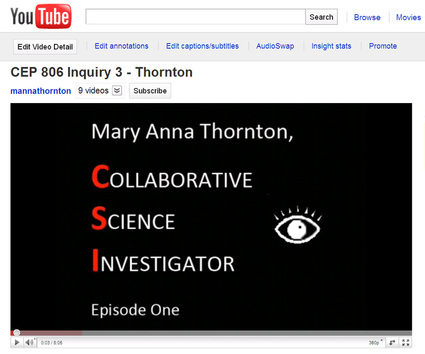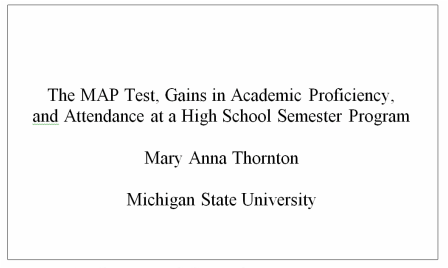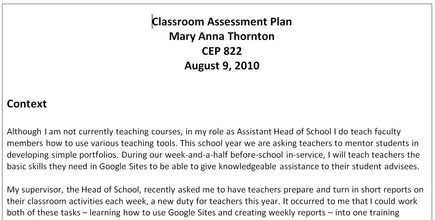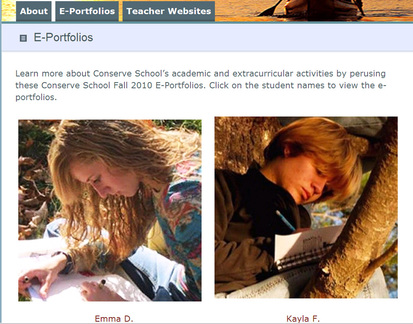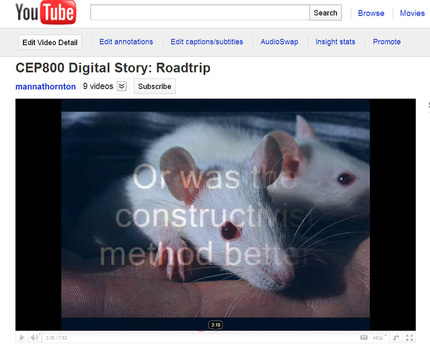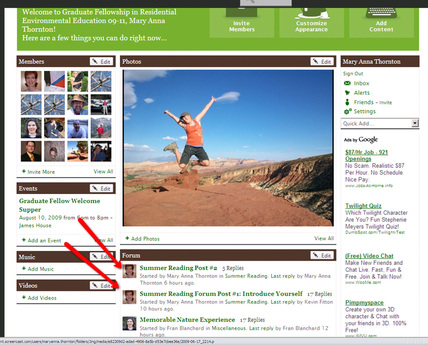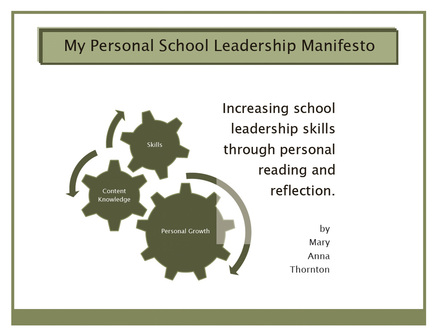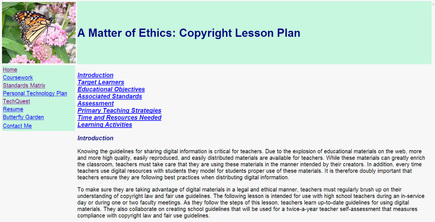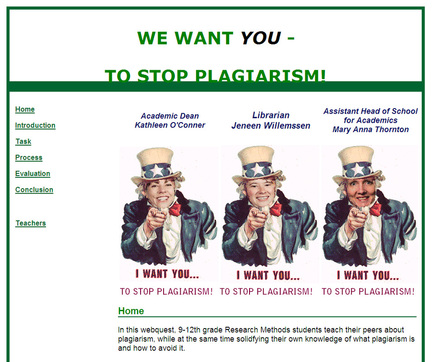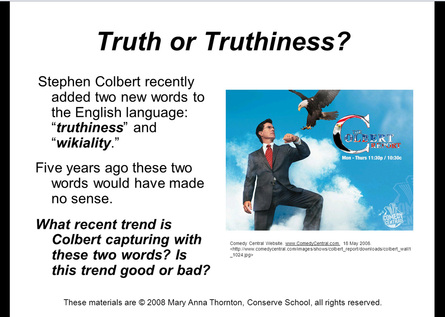courses and projects
One of the strengths of Michigan State's MAET program is that each class provides an opportunity for students to develop useful projects tailored to their own school settings and specific interests. While taking these courses, I created educational tools and conducted research projects with a great deal of "real-world" value. Below, you can read short descriptions of the courses I took., and, for each course, one example of a related project.
_______________________________________________________________
2011
2011
_________________________________________________________________
2010
2010
_________________________________________________________________
2009
2009
_________________________________________________________________
2008
2008
